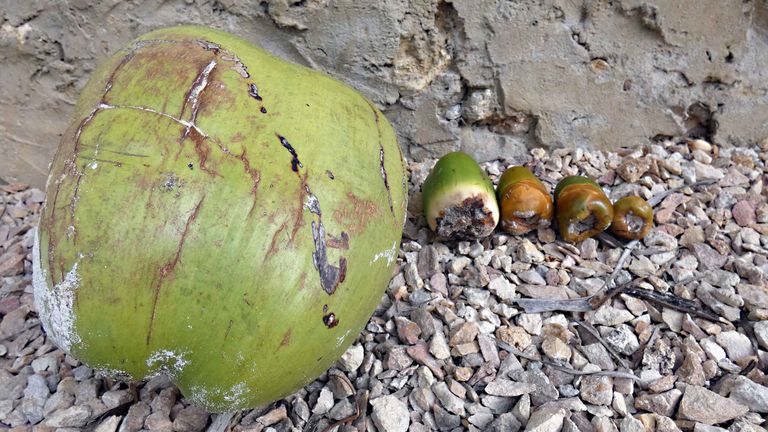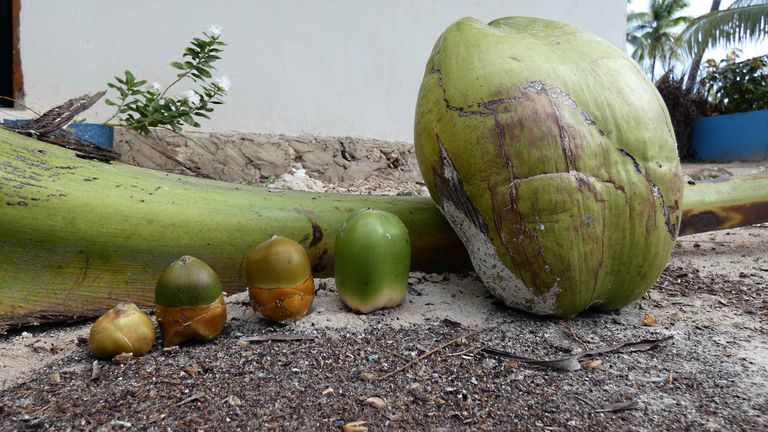
Coconut nutritional properties
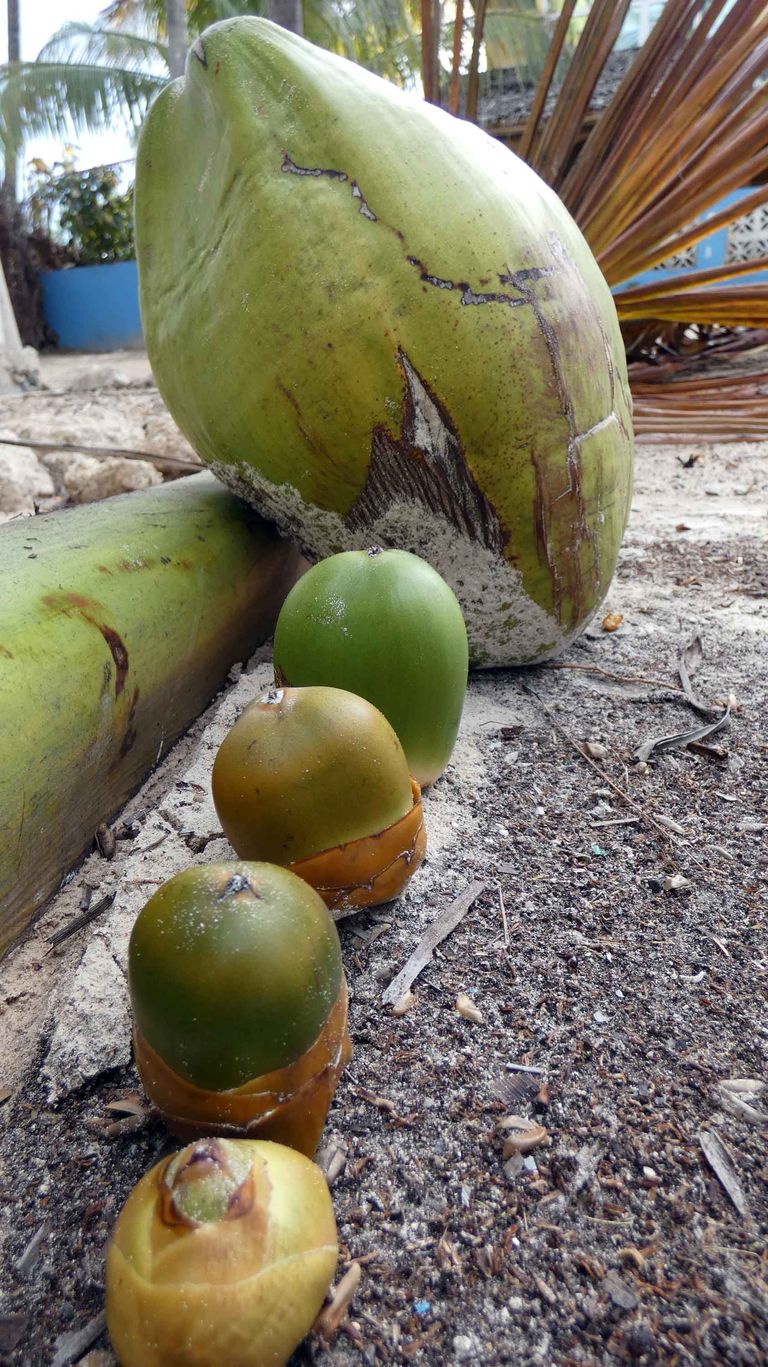
This fruit of the coconut palm, in the shape of a large egg, has many precious properties. It generally contains so many nutrients that it meets the body's needs for most minerals and vitamins. It is generally said that you can eat coconut milk alone for a long time and function well.
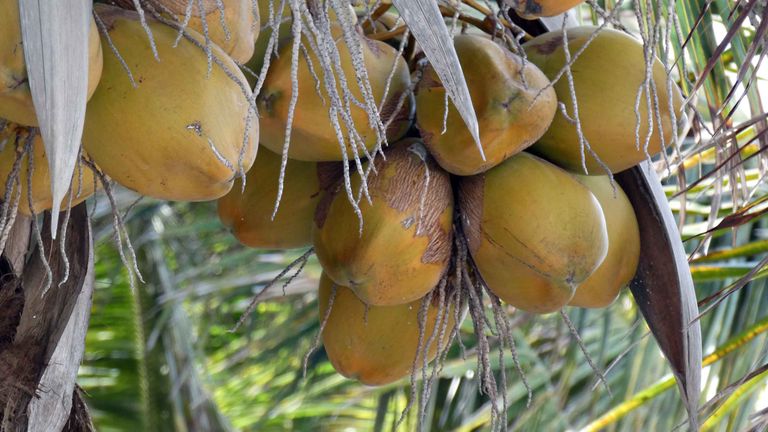
The coconut is made of a hard brown shell that has many uses. In countries with a poor supply of trees, the coconut shell serves as a fuel and is also used to make charcoal briquettes. Fibers, on the other hand, due to their antibacterial properties, are ideal as a substrate for growing in greenhouses. The coconut shell is also used in the production of decorations, dishes and other utility items.
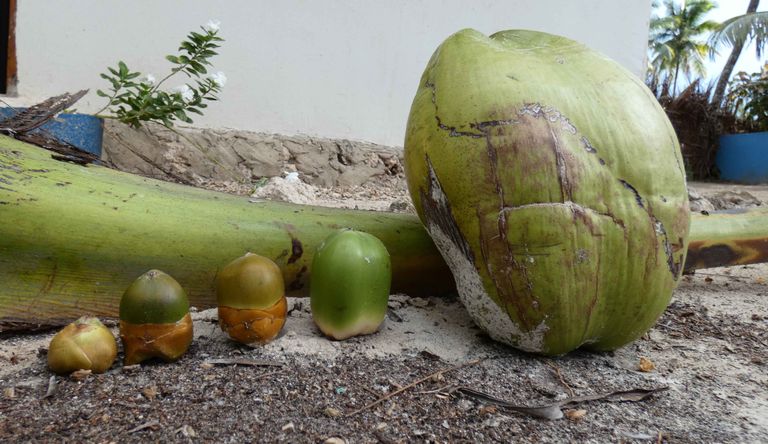
The inside of the coconut is filled with a liquid, mistakenly called coconut milk. It is water rich in many minerals and fats. It contains, among others: fat, saturated fatty acids, polyunsaturated fatty acids, sodium, potassium, calcium, magnesium, carbohydrates, fiber, sugars, protein, vitamins A, D, B6, B12, ascorbic acid and calcium. Perfectly quenches thirst. Coconut liquid is often used in the kitchen as an addition to dishes.
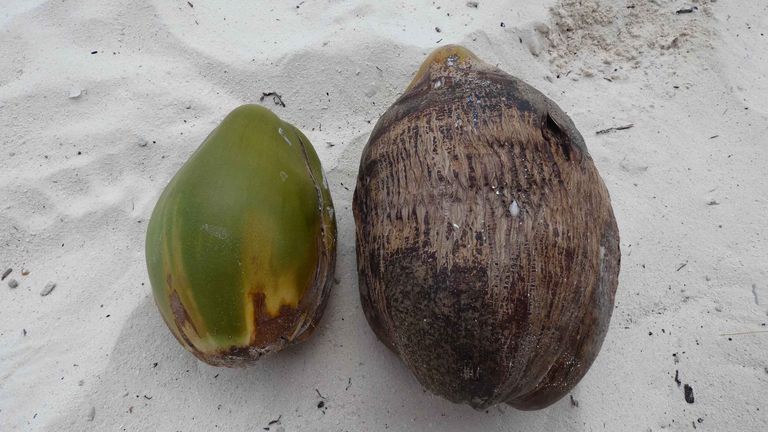
The inner part of the shell is covered with a very nutritious flesh from which chips are made. Also, this part of the coconut is rich in all kinds of vitamins and fats.
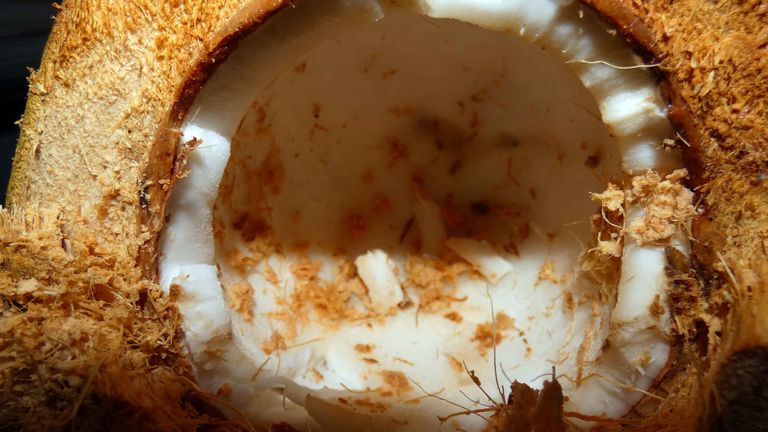
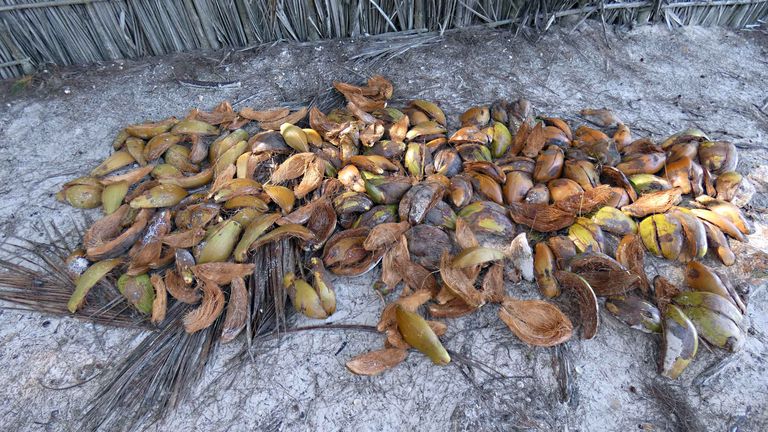
Coconut growth phases
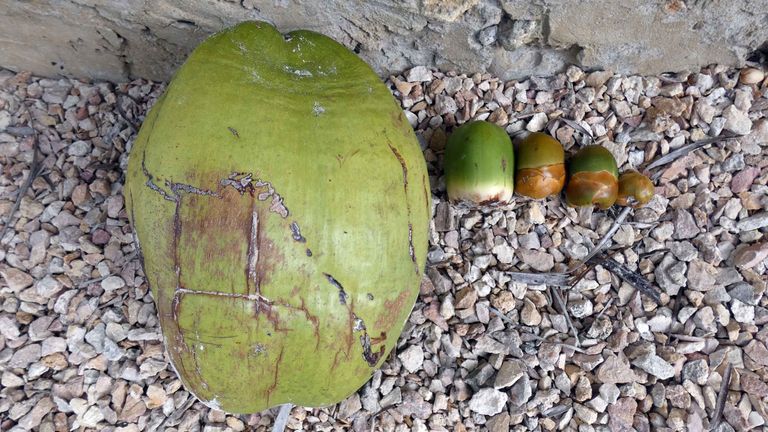
Initially, the coconut looks like a tiny peanut, it matures over time and can grow to the size of a large rugby ball. It can weigh up to several kilograms. Over time, its color also changes to yellow and orange. Such fruits, however, are overripe and unfit for consumption.
Coconut growth phases.
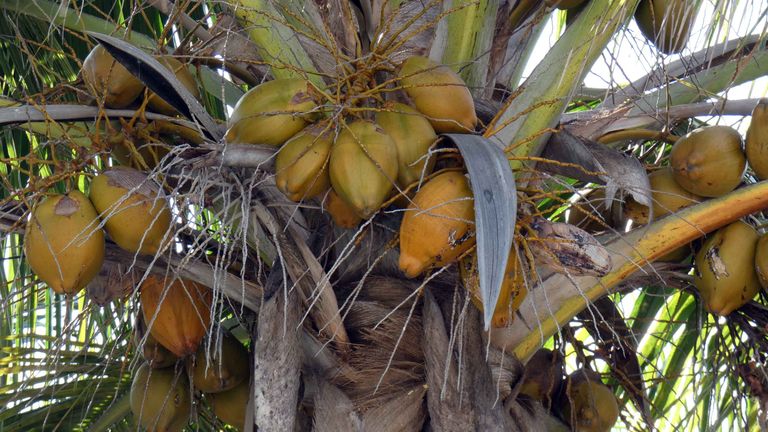
In many countries where coconut trees constitute the majority of trees, there is a significant threat from them. Coconuts have their weight and falling from a few meters they are a deadly threat. In many countries, the death rate among unaware tourists is greater than that caused by tropical diseases
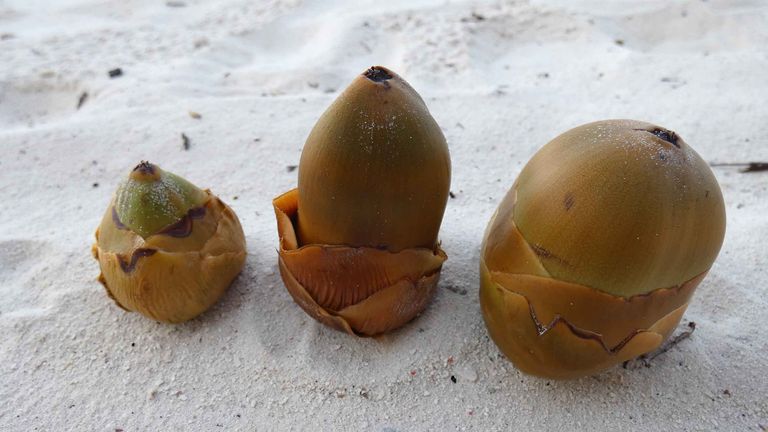
Can coconuts really be made of coconuts?
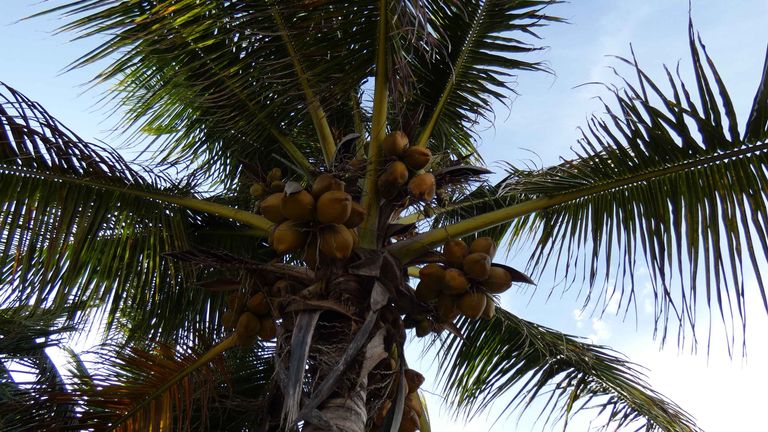
Of course, yes, but this only applies to intermediaries and obtaining valuable substances by pharmaceutical or cosmetic companies through high technology. The average inhabitant of Africa or Asia obtains water from coconut and endosperm (flesh) for everyday consumption. Others will never see coconut money from coconut crops.
